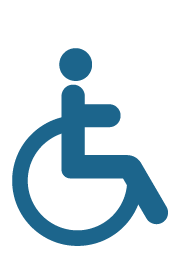

Building Recovery Capital through Digital Health Technologies (BRC)
Recovery support services are designed to help individuals with substance use disorders (SUDs) enter into and navigate systems of care, stay engaged in the recovery process, and live full lives in their communities. Digital health technologies offer other avenues by which behavioral health professionals can support patients’ recovery, thereby increasing recovery participation and decreasing the likelihood of relapse or interruption in service delivery or disease management. It is essential that behavioral health professionals understand and have knowledge regarding: the different digital health technologies that are available; effective patient engagement strategies; privacy and security issues; mobile app evaluation models; and ethical perspectives on recommending digital health technologies to patients.
This learning community will showcase digital health technologies related to recovery support services for patients with SUDs thereby helping behavioral health professionals and recovery support specialists become familiar with and increase their digital health technology skills.
WHEN:
Every Friday, August 30 – September 27, 2019, 11:00 am–12:30 pm MT/12:00—1:30 pm CT
OBJECTIVES:
- Describe engagement strategies for patients/peers in early recovery versus those in longer term recovery as it relates to using digital health technologies
- Identify three different types of digital health technologies and how these technologies are used by behavioral health professionals and peer support specialists
- Name two privacy/security issues related to digital health technologies and two ethical issues to be aware of related to recommending digital health technologies
- Utilize at least five digital health technologies (apps, websites, podcasts, videos, social media sites) and be prepared to recommend them for use by patients/peers
TARGET AUDIENCE:
- Behavioral Health, Substance Use Disorders, and Recovery Service providers located in the Mountain Plains ATTC region (HHS Region 8)
PARTICIPANT COMMITMENT & EXPECTATIONS
- Access to appropriate technology to utilize Zoom videoconferencing platform (i.e., internet connection, built-in or USB webcam, laptop/tablet, built-in/USB/Bluetooth speakers & microphone)
- View a 20-minute tutorial on how to use the Zoom videoconferencing platform
- Attend a live one-hour Orientation on August 30th, 11:00 AM (MT)/12:00 PM (CT)
- Commit to 4-weeks of online training for 1.5 hours weekly from Sept 6–27, 2019
- Complete weekly self-study learning activities
TRAINER(S)/FACILITATOR(S):
- Daniel Fred, M.S
THERE IS NO COST TO PARTICIPATE
The first 35 registrants will receive a scholarship that covers the entire $350 cost of participation. As a grant sponsored scholarship and to receive continuing education hours, it is expected participants will view the 20-minute video tutorial; attend the live technology training; be prepared for and join each session; and actively engage in group discussions. Due to limited enrollment, if you cannot commit to the full participant requirements, please defer this registration opportunity to others.
Please Note: Registrants enrolled in this series are required to attend the August 30th and September 6th sessions. If you cannot attend these sessions, you will forfeit your attendance. In addition, it is expected that participants will have access to the appropriate technology by September 6th to be able fully participate and be on camera at least 90% of the time. This is not a webinar series and active participation to gain/improve skills is required.
Continuing Education – The series has been approved for a total of 11 contact hours through the National Association for Addiction Professionals (NAADAC), International Certification & Reciprocity Consortium (IC&RC), and the National Board for Certified Counselors (NBCC) ACEP No. 6492. No credit will be awarded for non-attendance or partial attendance.
The knowledge and skills learned should be applied within the framework of any applicable Operating and/or Credentialing regulations in your State of practice.
QUESTIONS: please contact MPATTC Staff at mpattc@casat.org or by phone at 775-784-6265 or 866-617-2816 (toll-free).
All links in this series will open up as new windows in your browser. Please contact Mountain Plains ATTC if you have any access issues.


